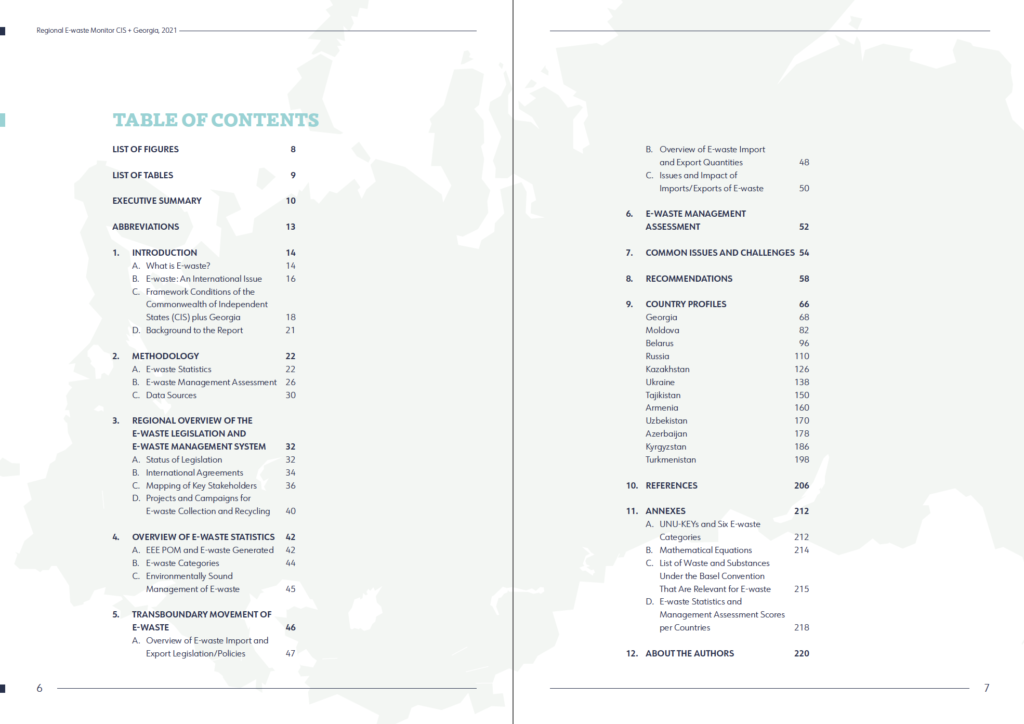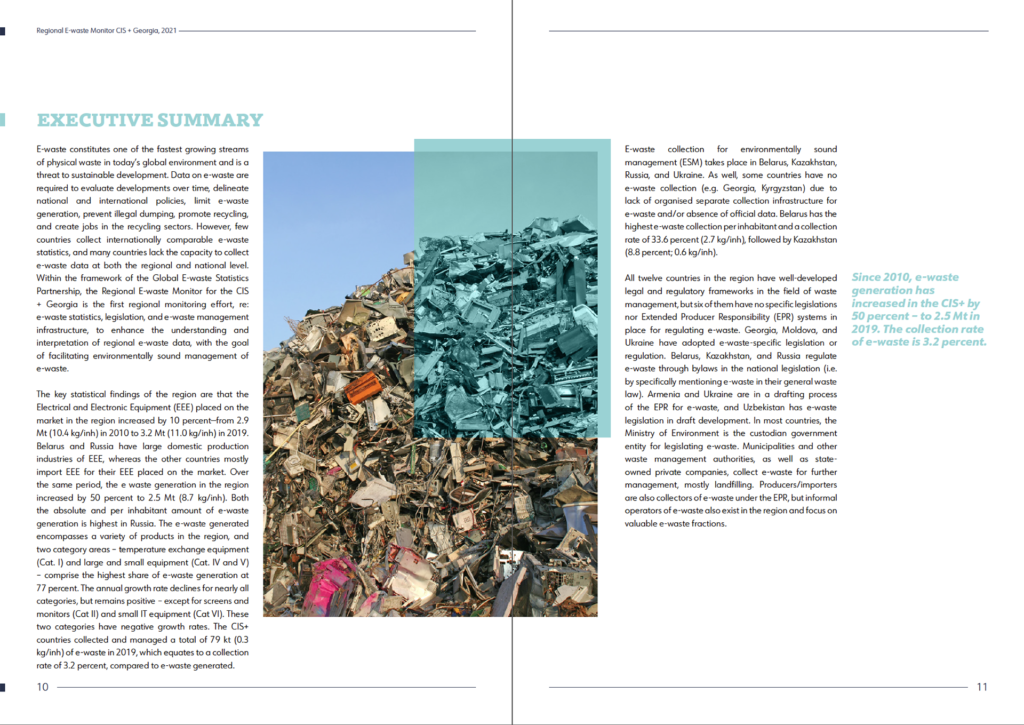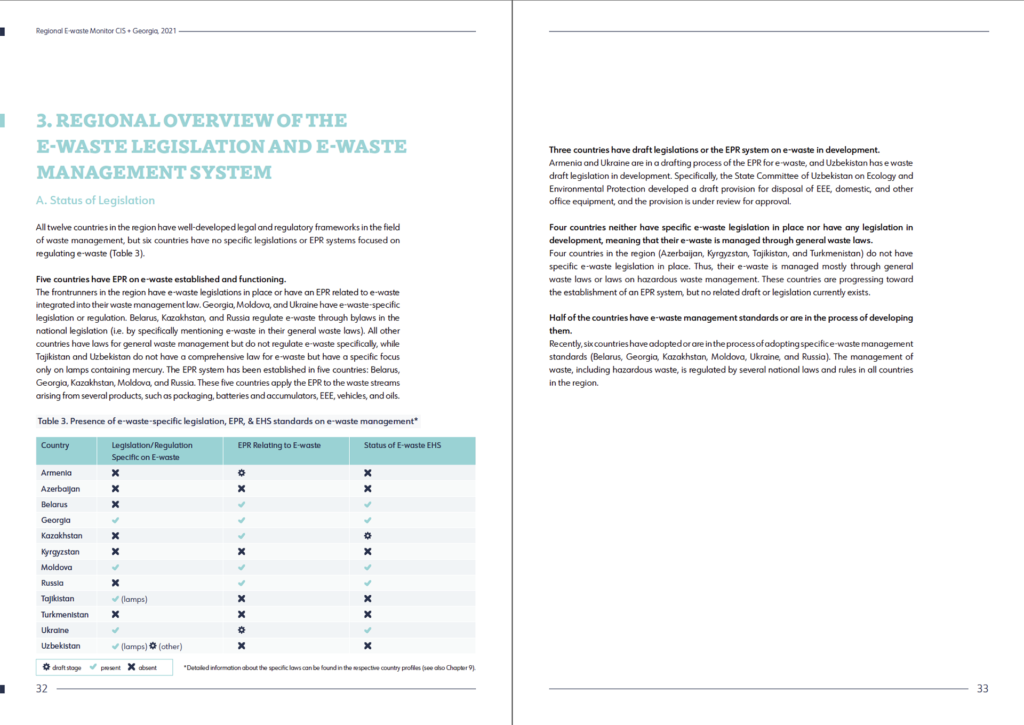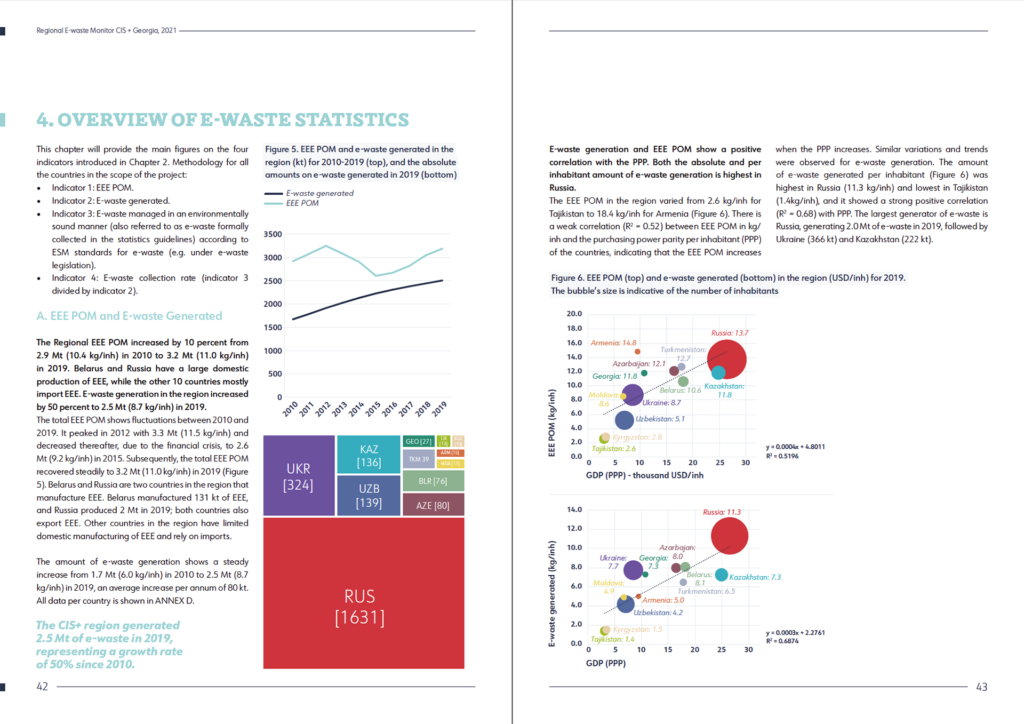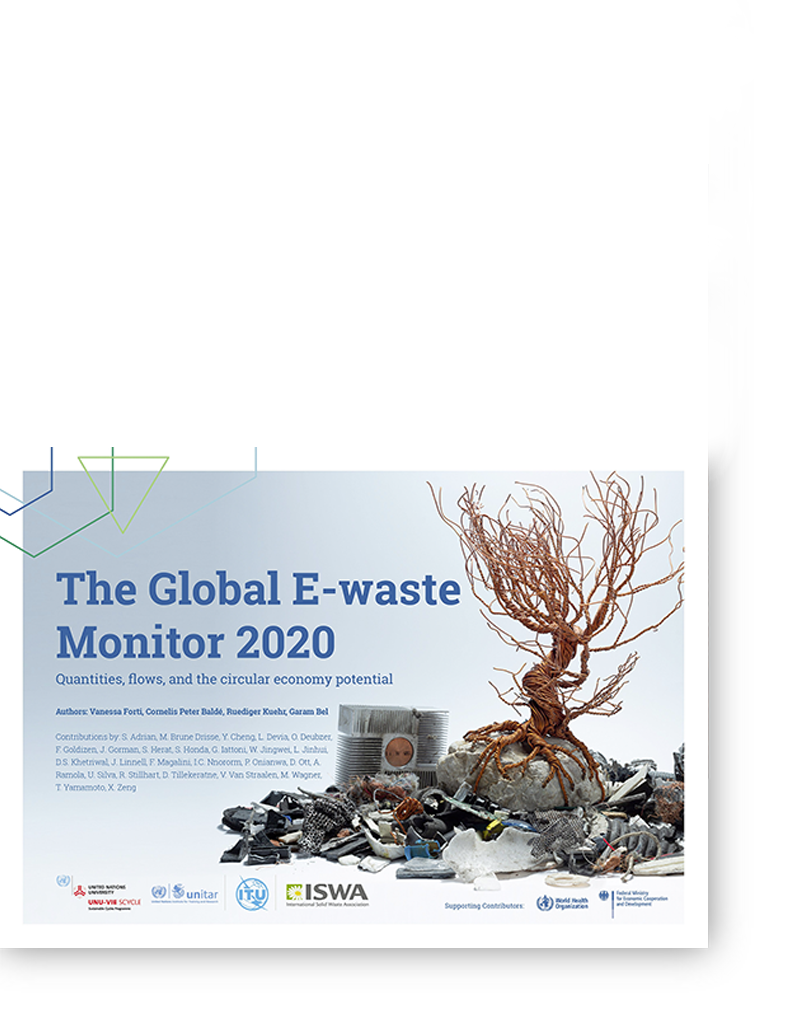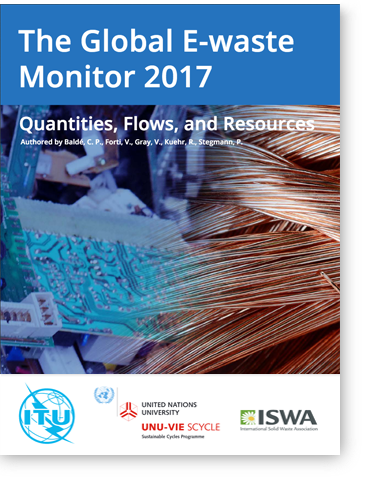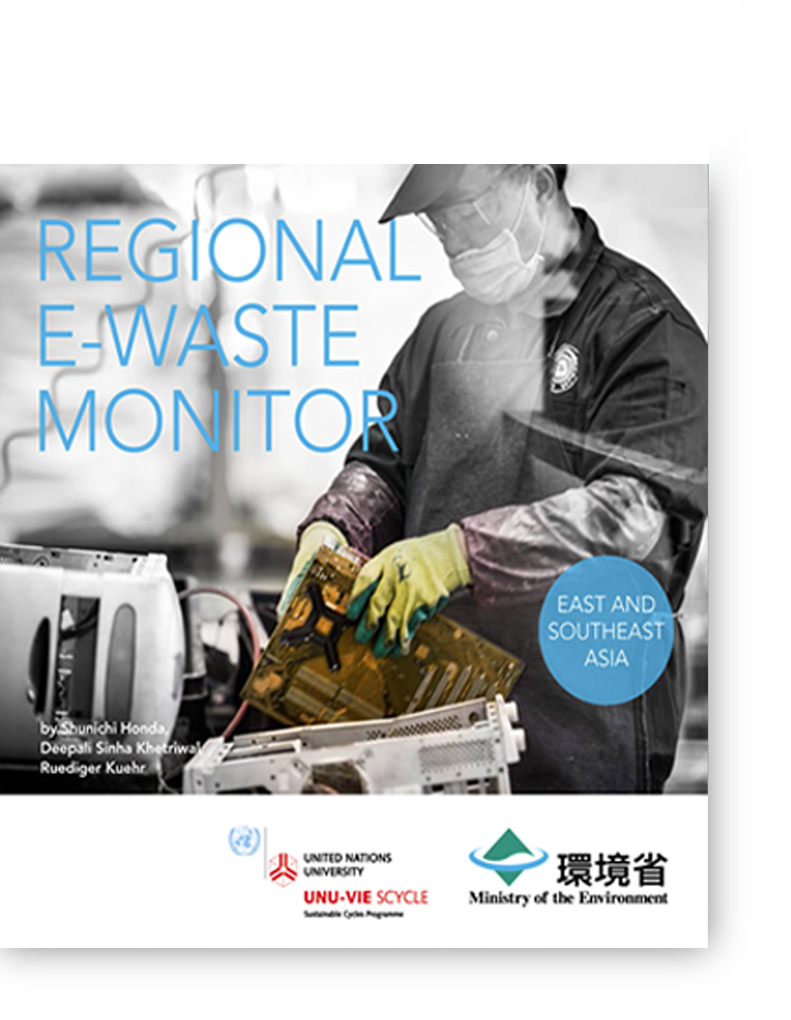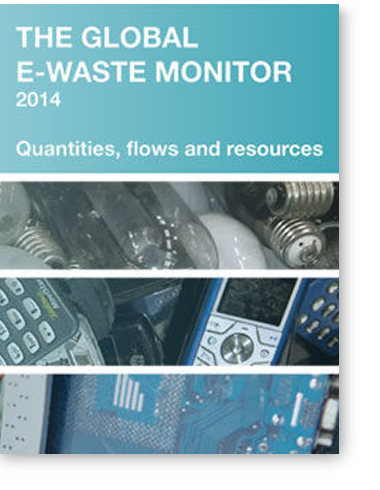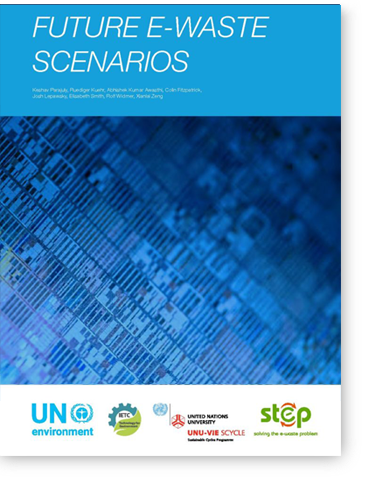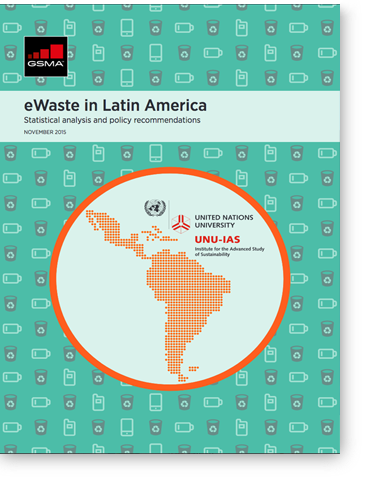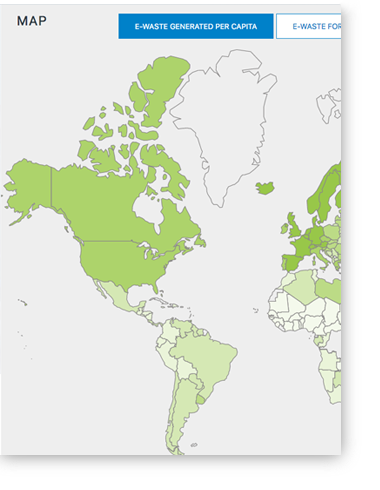The Regional E-waste Monitor CIS+GEORGIA 2021.
The Regional E-waste Monitor for the CIS + Georgia 2021 provides an assessment of statistics, legislation, and management infrastructure of e-waste in Georgia, Moldova, Belarus, Russia, Kazakhstan, Ukraine, Tajikistan, Armenia, Uzbekistan, Azerbaijan, Kyrgyzstan and Turkmenistan. The amount of e-waste generated in the region increased by 50 per cent to 2.5 Mt (8.7 kg/inh) in 2019. E-waste collection for environmentally sound management takes place in Belarus, Kazakhstan, Russia, and Ukraine, and showed that 3.2 per cent of total e-waste are managed in an environmental sound manner. Some countries have no e-waste collection (e.g. Georgia, Kyrgyzstan) due to lack of organised separate collection infrastructure.
All twelve countries in the region have well-developed legal and regulatory frameworks in the field of waste management, but six of them have no specific legislations nor Extended Producer Responsibility (EPR) systems in place for regulating e-waste. Georgia, Moldova, and Ukraine have adopted e-waste-specific legislation or regulation. Belarus, Kazakhstan, and Russia regulate e-waste through bylaws in the national legislation (i.e. by specifically mentioning e-waste in their general waste law). Armenia and Ukraine are in a drafting process of the EPR for e-waste, and Uzbekistan has e-waste legislation in draft development.
View the Press-Conference Launch REM CIS + Georgia
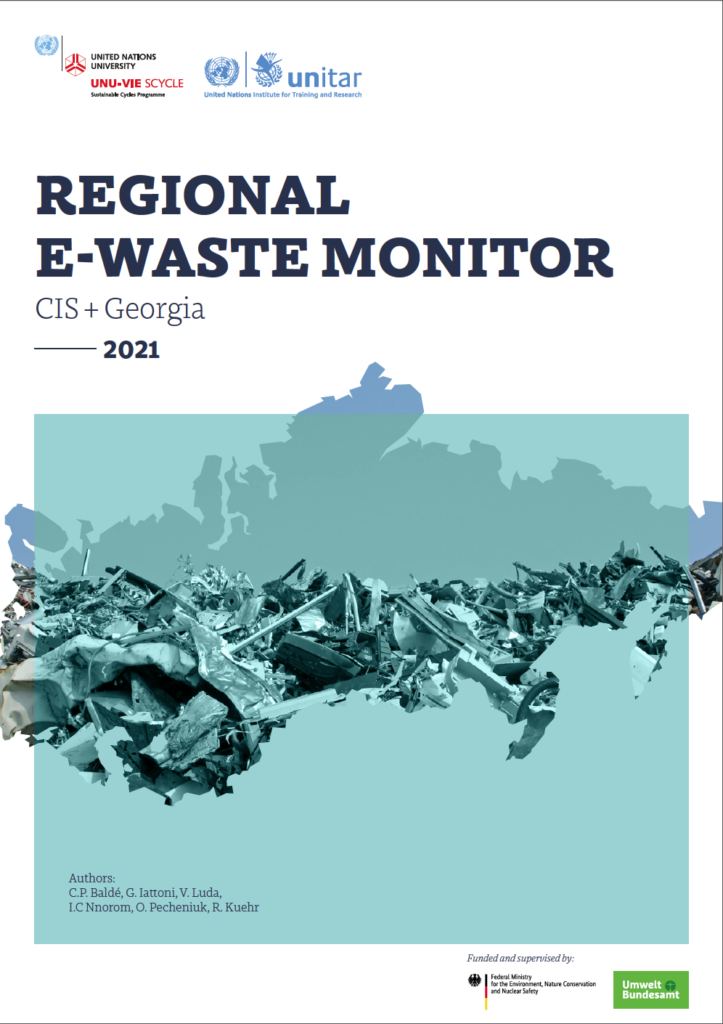
Monitor Features
1. What is E-waste?
Definition, product categories, disposal routes, key issues
4. Statistics
EEE POM and E-waste Generated, Categories, ESM
7. Common Issues
Five Driving Reasons
2. Methodology
Statistics, Management Assessment,
Sources
5. Transboundary Movement
Policies, Quantities, Issues and Impacts
8. Recommendations
3. Regional Overview Legislation and Systems
Status, International Agreements, Stakeholders, Projects
6. Management Assessment
Comparative Performance Review
9. Country Profiles
Book Preview
About the authors

Dr. Cornelis Peter Baldé (Kees)
Dr. Cornelis Peter BALDÉ (Kees) is a Senior Programme Officer at the Sustainable Cycles Programme at the United Nations University. At the UNU, Kees’s main tasks are to lead the statistical work, build institutional capacity on waste statistics in various countries, and waste policies, provide policy advice on e-waste to countries, and supervise staff and the strategic development of the team. He is one of the founders of the Global E-waste Statistics Partnership. Kees is currently the co-chair of the Taskforce on Waste Statistics of the UNECE Conference of European Statisticians that is tasked with developing a framework for waste statistics that is sufficient for monitoring current and future circular economy policies as well as waste policies. Additionally, Kees has been selected by the Dutch government as a member of the board of directors of the Dutch Waste Electronical and Electronic Appliances Register, a role he has held since 2015. In 2018, the Global E-waste Monitor 2017 won the European Advanced SDG award from the Diplomatic Academy in Vienna. At Statistics Netherlands, Kees received the Innovation Award for the Dutch Green Growth publication in 2012. Previously, Kees worked at Statistics Netherlands as the deputy head of the Environment Statistics team. He earned his PhD on hydrogen storage at the Faculty of Chemistry at Utrecht University.
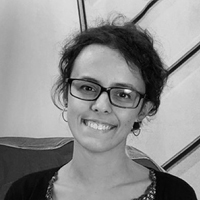
Giulia Iattoni
Giulia Iattoni is a Programme Associate at the Sustainable Cycles Programme, co-hosted by UNU and UNITAR. Giulia graduated cum laude in Environmental Engineering at the University of Bologna and spent a research period at the Technical University of Vienna, focusing on water quality and resources sustainability. Since 2019, Giulia has been involved on various projects on e-waste data collection and quantification of environmental impacts at the national and regional level. She is also designing and conducting workshops to build institutional capacity on e-waste statistics and legislation for several countries worldwide.
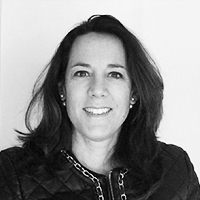
Vittoria Luda di Cortemiglia
Vittoria Luda di Cortemiglia works as a consultant for the Sustainable Cycles Program of UNITAR. She graduated in law at the University of Turin and completed a Master of Arts (MA) in International Relations at St. John’s University in New York. Vittoria leads analysis and training programs related to waste crime, transboundary waste shipments, and environmentally sound management of waste.
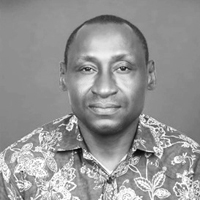
Dr. Innocent Nnorom
Dr. Innocent Nnorom works at Abia State University in Nigeria. He received his PhD in Analytical/Environmental Chemistry from the University of Ibadan, having studied pollution from e-waste management in Southern Nigeria. He was part of the 2009 E-waste Summer School. He has participated in several e-waste projects, including the E-waste Africa Project and the Person in Port (PiP) Project. He is a Senior Research Fellow at the Basel Convention Coordinating Centre for Africa (BCCC-A) in Nigeria. In 2019, he was a Visiting Research Fellow at the University of Manchester. He has contributed to the Global E-waste Monitor in recent years.
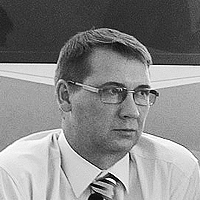
Oleg Pecheniuk
Oleg Pecheniuk began working as an environmental legal expert in 1997, while still a law student. As a lawyer trained and working in Kyrgyzstan, he has a deep understanding of the country’s national environmental law. Over the years, Mr. Pecheniuk has prepared plenty of law projects, provided ecological expertise toward numerous normative legal certificates normative legal basis, the conduct of the public ecological expertise, and the promotion of public participation on both national and international levels.
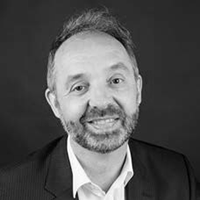
Dr. Ruediger Kuehr
Dr. Ruediger Kuehr is the Director of UNU’s Sustainable Cycles (SCYCLE) Programme and Head of the recently established UNITAR Bonn Oÿce. He also serves as Head and Senior Manager of the SCYCLE Programme under UNITAR. As a political and social scientist by education, Ruediger has worked for more than twenty years on the e-waste challenge. He co-founded the StEP Initiative, co-initiated the development of an e-waste coalition among the various UN organisations and the SCYCLE Programme, and initiated the permanent E-waste Academies and E-waste Monitors at the global, regional, and national levels. But the foundation of Ruediger’s work is in establishing strategic approaches to sustainability, which renders life-cycle thinking indispensable in his activities; as such, he is also a frequent speaker for forward-thinking at conferences and in media appearances.
Other E-waste Data Resources
E-waste in Latin America
• eWaste in Latin America 2015: Statistical analysis and policy recommendations.
